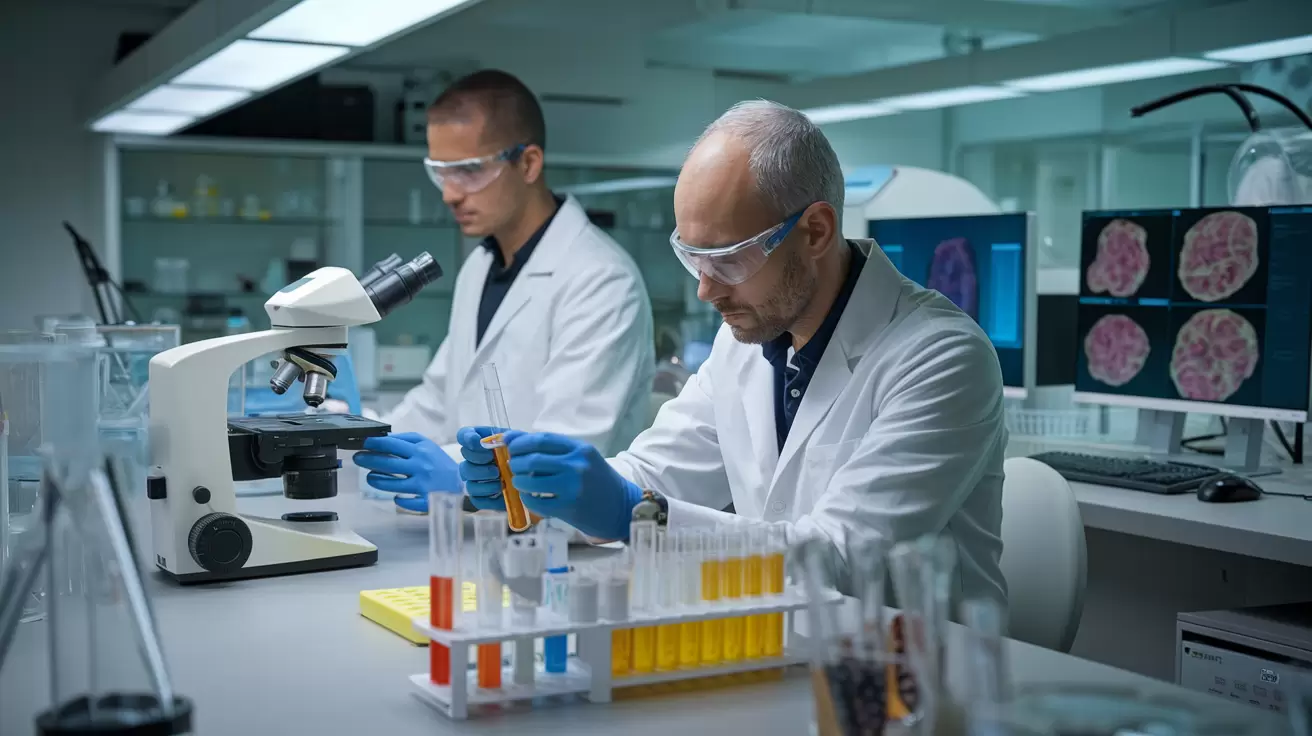Healthcare with Confidence
Prostate cancer remains a significant health concern in Israel and abroad, making it the most prevalent cancer among men.
In 2025, Israel continues to lead in innovative treatments and research, offering advanced options in surgery, radiotherapy, and clinical trials
Prostate Cancer Treatment in 2025: Innovations, Breakthroughs, and Hope in Israel
Best Israeli Doctors for Prostate Cancer in Israel
It is recommended to be treated by an experienced, prostate cancer focused specialists.
Israel boasts a cadre of esteemed professionals dedicated to prostate cancer treatment. Here are some of the leading doctors and institutions specializing in prostate cancer care in Israel in 2025 – oncologists, surgeons, radiologists, pathologists, radiation oncologists.

We collaborate with such worldwide known prostate cancer specialists as Prof. Raanan Berger, Dr. Eli Rosenbaum, Prof. Jack Baniel and many others.
If you want to get a Second Opinion or Consultation Online of a leading Israeli prostate cancer specialist, please provide:
- your medical summary, including treatments and results
- medical files
- blood tests
- pathology reports
- PET CT, MRI reports in English and CDs.
We will promptly organize consultation.
Choose your doctor and contact us: ⇒ 5 Best Doctors for prostate cancer Israel – 2025
Based on the results of the consultation, we will provide you with a doctor’s report with treatment recommendations.
Advanced treatment of Any Type, Stage and Differentiation:
- Adenocarcinoma (acinar / ductal adenocarcinoma)
- Transitional Cell Carcinoma
- Squamous Cell Carcinoma
- Small Cell Prostate Cancer
The main treatments for Prostate cancer are Active and passive observation / Surgery – radical prostatectomy /External radiation therapy /Internal radiation therapy (brachytherapy) /Focal treatments / Systemic treatments /Hormonal therapy / Chemotherapy in combination with other treatments /Immunotherapy /Treatment to relieve symptoms.
Surgical Innovations in 2025
Israeli hospitals are at the forefront of minimally invasive surgical techniques:
- Robotic-Assisted Surgery: Surgeons utilize the latest Da Vinci Xi surgical robot to perform precise, nerve-preserving prostatectomies. This technology enhances surgical accuracy, offering high precision and reducing risks such as sexual dysfunction. The system provides 3D imaging and eliminates hand tremors, enhancing surgical outcomes. Robotic surgery reduces recovery time and minimizes complications.
Innovations in Radiotherapy
Israeli medical centers have made notable advancements in radiotherapy for prostate cancer:
- High Dose-Rate (HDR) Brachytherapy: This novel procedure involves inserting thin tubes into the prostate gland to deliver targeted radiation, effectively destroying cancer cells with minimal side effects. The precision of HDR brachytherapy reduces damage to surrounding tissues and decreases the number of required sessions.
- Reduced Radiation Sessions: A pioneering study led by Dr. Elisha Freedman from Beilinson Hospital demonstrated that delivering high-dose external beam radiation therapy in just two sessions is as effective as the traditional five-session protocol. This approach not only maintains efficacy but also lessens patient burden and enhances treatment capacity.
- More about radiotherapy for prostate cancer in Israel
Emerging Therapies and Clinical Trials in 2025
Israel is actively involved in developing and implementing cutting-edge therapies:
- Lutetium-177 PSMA Therapy: This targeted treatment involves injecting radiopeptides that bind to prostate-specific membrane antigens (PSMA) on cancer cells, delivering localized radiation to destroy them. Sheba is among the few centers worldwide offering this advanced therapy.
- POPSTAR II Clinical Trial: Sheba Medical Center has joined the Peter MacCallum Cancer Center for the POPSTAR II trial, comparing Lutetium PSMA therapy and stereotactic ablative radiotherapy (SABR) for advanced prostate cancer. This collaboration aims to enhance treatment options and outcomes.
Other Treatment Methods
Israel’s commitment to innovation and excellence in prostate cancer treatment offers patients access to state-of-the-art therapies and world-class medical expertise.
- SpaceOAR hydrogel – A water-based preparation designed to temporarily separate the anterior rectal wall from the prostate during radiation therapy for prostate cancer. Creating this space reduces the radiation dose received by the anterior rectum and the risk of intestinal symptoms as a result of radiation therapy. The preparation is injected as a liquid into the space between the prostate and the rectum, separating the organs then crystallize into a soft hydrogel. The gel remains stable for three months during radiation treatment and then dissolves and is completely absorbed by the body.
- Cryotherapy – performed under general anesthesia or with an anesthetic injection into the back. Several metal transducers are inserted through the skin into the area of the prostate tumor, containing liquid nitrogen, which freezes and destroys the tumor. Although the procedure is done under local anesthesia, you may experience pain, but this can be managed with painkillers. After freezing, a tube (catheter) is inserted into the bladder through the abdomen to drain urine. The catheter is removed about one to two weeks after treatment. Cryotherapy can be used to treat men with early, low-risk prostate cancer who are not suitable for surgery or radiation therapy. However, most doctors do not use cryotherapy as the first treatment for prostate cancer. Compared to the “standard” treatments, which are surgery or radiation therapy, there is currently less information about the long-term effectiveness of cryotherapy.
- High-Intensity Focused Ultrasound (HIFU) – the ultrasound transducer (a device that receives and transmits sound waves) is inserted through the anus into the rectum, maps the prostate gland, and transmits high-intensity focused sound waves that produce localized heat and treat the tumor. The transducer is surrounded by a cooling balloon that protects the rectal wall. This treatment is given under general or local anesthesia, and after a short recovery and observation, the patient is discharged home. The accuracy and real-time monitoring reduce side effects, such as erectile dysfunction and urinary leakage. Because the treatment is non-invasive and does not use ionizing radiation, there is no bleeding or side effects typical of radiation treatments. HIFU is suitable for patients with early-stage tumors as an alternative to surveillance, surgery, or radiation, or for those whose disease has returned after radiation therapy, when the tumor is still limited to the prostate area. This treatment is relatively new, and there are still no long-term results and follow-up regarding its effectiveness.
- Electric current therapy (Nano Knife) – use of electric current passing through thin electrodes that surround the tumor and damage the integrity of its cell membranes. The goal of the treatment is to create holes in the membrane walls and thus destroy the cancer cell. The operation is performed as a day hospital and is done under general anesthesia. First, the tumor area is marked using MRI, then several thin needles (electrodes) are inserted through the skin into the prostate under ultrasound guidance, so that they surround the tumor area. The electric current is transmitted between pairs of electrodes. The method is still very new in the treatment of prostate cancer and is considered experimental.
Oncotests to determine the type of treatment for Prostate Cancer in 2025
There are several tests that can be used as an aid in choosing the type of treatment. These are genomic tests of the biopsy tissue, which aim to provide more accurate information about the subject’s risk level and thus help in making a treatment decision.
- Genomic Prostate Score Oncotype DX – GPS is a genomic test that examines the expression of 17 different genes associated with prostate cancer, and is intended for patients with localized prostate cancer. The test is performed on tissue that has already been taken from the biopsy and provides information on the aggressiveness of prostate tumors, including those that were not sampled, predicts the risk of developing metastases and the risk of dying from prostate cancer. In low- and intermediate-risk patients, the test results help make a treatment decision about active surveillance or immediate local treatment. In intermediate- and high-risk patients, the test can help make a decision about the need for combination therapy.
- Prolaris is a genomic test that analyzes changes in 46 genes in prostate biopsy tissue and provides a risk score to help predict the likelihood of disease progression in men with localized prostate cancer. The test is designed to help choose the appropriate treatment in cases of low-grade and sometimes even moderate-grade prostate cancer: whether it is active surveillance without surgery or radiation, or active treatment, i.e. surgery or radiation therapy. The test can also help in deciding whether to provide adjuvant hormonal therapy in high-risk patients after surgery or radiation therapy.
- Decipher – a genetic test based on 22 genetic markers and can help decide who is a suitable candidate for active surveillance and who needs treatment. The test is performed on excised prostate tumor tissue. The test can also determine whether patients who have received radiation therapy for prostate cancer or prostatectomy may benefit from the addition of hormonal therapy or whether this treatment can be dispensed with without risk of worsening.
- 4KScore – a blood test that checks the level of four biomarkers (biological markers that raise suspicion of prostate cancer). The biomarkers are: total PSA, free PSA, bound PSA and hK2. The test can help in certain cases where PSA values are high, to decide whether a prostate biopsy is necessary. The test is also intended for subjects who have undergone a biopsy that turned out to be normal, but there is still a concern about prostate cancer.
- Onco-test ProMark Prostate – test is done on prostate biopsy tissue, predicts cancer aggressiveness* in patients with biopsy Gleason Scores of 3+3 and 3+4. It provides a personalized prediction that the cancer can be managed without aggressive treatment, or an indication that aggressive therapy may be appropriate, objective and fully reproducible, outperforms and requires substantially less tissue than conventional gene-expression-based Prostate Cancer prognostic tests.






